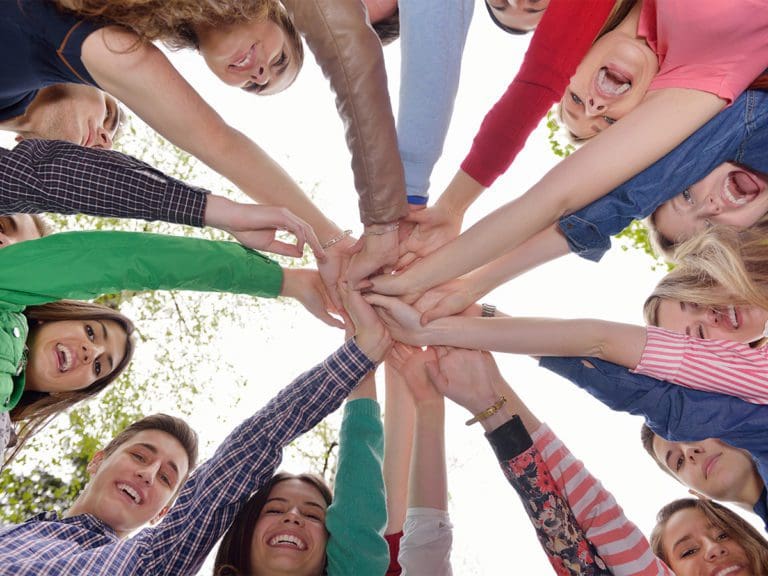Friendships play a key role in the development of children and adolescents. They help young people learn to form and maintain relationships. Friendships present circumstances to assist in the acquisition of problem-solving skills and conflict resolution strategies. Young people can also gain a sense of identity and connectedness through friendships.
Obviously, friendships play significant roles in young people’s social growth. However, they can also exert important influences on their school success—even their lifelong career opportunities.
Young people whose friends comply with school behavior expectations are less likely to violate school rules and find themselves in trouble. Unfortunately, the opposite is also true. Friendships can keep young people behaving responsibly or distract them from doing so.
Research studies have documented the positive impact friendships have on the academic effort students give and the success they achieve. Young people whose friends value and invest in academic learning achieve at higher rates than similar agemates whose circle of friends invest less in academic pursuits.
Now, a series of studies by Harvard economist Raj Chetty and colleagues found that friendships and other social connectedness play a key role in raising career aspirations and pursuits. When friendships cross socioeconomic lines and include others who hold higher career and life aspirations and who have greater access to social capital, new options and opportunities emerge. For these young people, friendships contribute toward upward mobility and expand life and work opportunities. Alternatively, when friendships remain within social class networks, young people tend to remain within their networks and assume work roles common in their communities.
The researchers noted that economic connectedness offered through friendships that cross socioeconomic lines is a strong predictor of economic upward mobility—more so than school quality, family structure, or race. Further, the impact is often career long. Individuals build new skills, become aware of expanding education and career opportunities, and form relationships with people from diverse backgrounds and in a variety of settings.
What implications does the importance of friendships hold for our work with young people? Here are six actions we can take:
- We can share the important life consequences their decisions can produce when counseling and coaching young people about their choices of friends. Parents, too, may find this information helpful as they support their children’s development and encourage friendships.
- We can nurture and monitor the culture of our school and class to ensure that all students are accepted and valued, and that wealth, race, and other factors don’t determine success in social groups and activities.
- We can break down the school into small, diverse groups of students for advisory, service learning, and social activities, and provide other opportunities to form relationships that might not otherwise occur in large school environments.
- We can structure class activities to encourage interactions and relationships among young people that cross socioeconomic and academic groups. For example, we can design class activities and place students from various groups and levels of academic performance to perform tasks and address challenges that tap the talents and interests of all students, not just those with strong academic skills.
- We can encourage students to join co-curricular and extracurricular activities that attract the full spectrum of student interests—such as Esports, the arts, and sports—and are less dependent on traditional “feeder” systems. However, we also need to ensure that economics is not a barrier to student participation.
- We can reduce stratification of students in school and increase opportunities for students to interact across social and academic lines. High numbers of Advanced Placement classes and formal gifted and talented classes can work against such interactions. Special attention should be given to ensuring that these opportunities are well-populated with students from the full socioeconomic spectrum and fully reflect racial and other demographic characteristics of the student population.
- We can create experiential learning opportunities such as career pathways, internships, and job shadowing to expose students to a wide variety of experiences, expectations, and connections.
The friendships students form can have much greater and longer-lasting implications than they might imagine. We need to do our part to help students make good choices and support the development of friendships that can well serve our students now and in the future.



